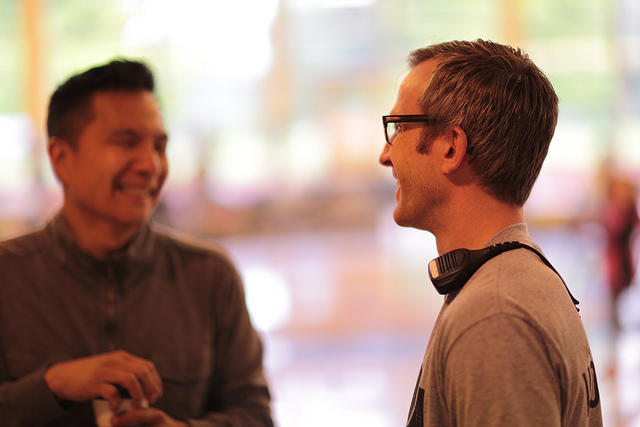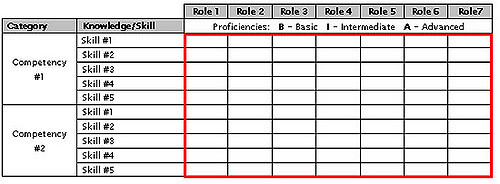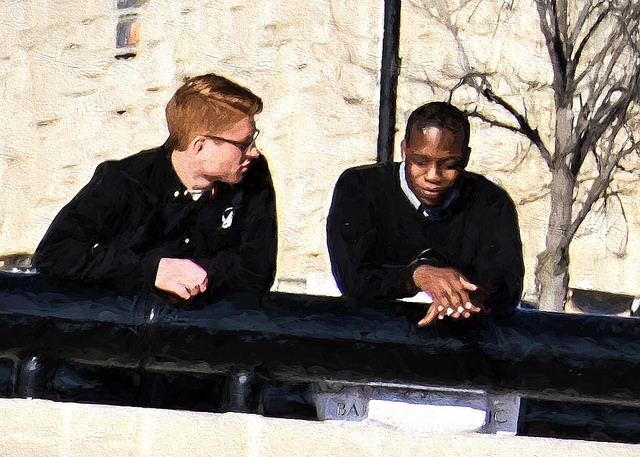opinion
Sometimes you become aware of the same topic coming at you from different directions. That’s how it is for me at the moment with compassion in the workplace. I’m hearing about compassionate leadership, mainly in the context of the UK’s NHS, and I’m hearing too about compassionate performance management. There seem to be moves towards greater compassion in organisations of all kinds.
An article by Emma Seppala of Stanford University in Harvard Business Review (‘Why Compassion is a Better Managerial Tactic than Toughness’) quotes a study by Jonathan Haidt of New York University, showing that the more employees look up to their leaders and are moved by their compassion or kindness (a state he terms elevation), the more loyal they become to those leaders. Anyone else who has witnessed this behaviour may also experience elevation and feel more loyal. Equally, responding with anger or frustration (or indeed other negative behaviours) erodes loyalty.
In other words, compassion increases our willingness to trust: our brains respond more positively to bosses who have shown us empathy – and various studies have shown that compassion increases the health and wellbeing not only of employees but also of the bottom line.
Seppala also finds that compassion and curiosity increase employee loyalty and trust. It doesn’t take more than a few moments’ thought for me to recall individuals I’ve worked with in organisations where insensitive or harsh criticism, lacking empathy, or even dismissiveness, provoke anxiety, stress and distrust, and erodes confidence. As a result, willingness to take responsibility and the courage to be creative are diminished, which in turn slows down or even blocks the flow that is so critical to organisational effectiveness and to the innovation that is the lifeblood of organisational development.
Ironically, we see this especially in organisations which are highly results-focused: the more their management and leadership styles focus on the tasks that are part of getting things done, the less attention is paid to nurturing and developing the people who are to fulfil the tasks. So the pace of task completion slows down, the pressure increases, and even less attention is paid to the people.
This extends too to the physical environment that the employer provides: investment in comfortable and attractive furniture, even down to clean crockery, gives the message to staff (and visitors) that they matter. One of the things that struck me on a recent visit to a FTSE 250 company was both how shabby the environment was and how dispirited the mood seemed to be amongst employees. I can’t help wondering about the connection between the two.
When compassion is low, trust is reduced, engagement and levels of discretionary effort are correspondingly low, retention and successful recruitment grow more difficult, stress and absenteeism are high, reputation (for the wrong things) grows, and success becomes more elusive. Conversely, when compassion is high, so too are organisational vibrancy, employee happiness, and the tendency towards sustained effectiveness and success.
Simple really. It’s just about being human and bringing humanity to work.
Photo by SupportPDX via Compfight
Compassionate leadership
Compassion at work increases our willingness to trust: our brains respond more positively to bosses who have shown us empathy – and compassion increases the health and wellbeing not only of employees but also of the bottom line. When compassion is low, engagement and levels of discretionary effort are low, retention and recruitment are more difficult, stress and absenteeism are high, and success becomes more elusive.
Read more »Self-leadership
Unless we know how to lead ourselves, we can’t expect to be effective leaders of others - and self-coaching engenders a capacity for self-leadership as a pre-condition for leading others. High-quality leadership isn’t a check-list: it’s a question of how the leader brings the essence of themselves to their role, and for this, leaders need to courageously examine their own practices and thinking, and to build their self-awareness, self-understanding, and awareness of how the systems of relationships and influences around them work, and how they impact on each other.
Read more »Making an impact - through self- and system-awareness
Creating an impact that is authentic - and therefore compelling and lasting - means going beyond the tools and techniques for managing body language, creating rapport and getting 'in the zone' for a presentation. The individual needs to be at ease with themselves through a high level of self-awareness and centredness, and a comprehensive clarity about their relationship to the systems they move within.
Read more »Post-truth leadership
We are witnessing the rise of post-truth politics: a culture in which statements are framed largely by appeals to emotion, completely disconnected from the political facts, and in which factual rebuttals in discussion are ignored. Are we also seeing the rise of post-truth leadership?
Read more »Wilful blindness, belonging and exclusion
Wilful blindness - the blinding of oneself to uncomfortable facts - comes from fear of conflict and fear of change. A powerful, unconscious impulse to obey, conform, and preserve our sense of belonging, means that we favour information that makes us feel good about ourselves, and that makes us feel comfortable and more certain. However, it actually leaves us crippled, vulnerable and powerless. Without challenging our belonging, the chances of growth, progress and anchored, sustained change are diminished.
Read more »Coaching qualifications and accreditations: a new angle
Knowledge and experience alone may have little or nothing to do with what makes for an excellent coach – and yet until now many of the principles underlying coach assessment have been about competencies. Tatiana Bachkirova and Carmelina Lawton-Smith (2015), of Oxford Brookes University, argue that the complexity and unpredictability of coaching may need a new model, and they propose a capabilities approach rather than a competencies approach.
Read more »#hellomynameis: Courage, passion and pioneering
Consultant geriatrician Kate Granger, who set up, and became the force behind, the campaign #hellomynameis, has died of terminal cancer aged 34. Passionate about person-centred, compassionate care, she was a leader by virtue of her passion, commitment, courage and determination to reach as many people as she could in service of a message which she believed would create a better quality of medical professional by releasing more of their inherent humanity.
Read more »Leadership and the EU referendum
Leaders need not only to fully understand the issue they’re dealing with, especially if it challenges groupthink, but they also need to be able to communicate it in a way that is accessible and compelling to their audiences. The leader who connects with their followers will hold them in the palm of their hands. This is truly where the power is.
Read more »Culture and culture change
Organisational culture shows up in literally hundreds of different ways in which people behave and live out attitudes and beliefs. Changing a culture needs to be addressed both at the level of the leader and at the level of the whole system - and by exploring how these two interact. A culture in which the past is honoured is a culture in which change towards a new future can be embedded most effectively and sustainably.
Read more »Cross-cultural coaching: complexities and pitfalls
In cross-cultural environments the coach needs be cautious about challenging the assumptions that they might otherwise challenge: if the client's attitude or belief comes from their culture of origin, it may be close to their sense of self. Equally, issues such as self-promotion in the context of career development and the client's relationship to their family need to be handled sensitively.
Read more »











